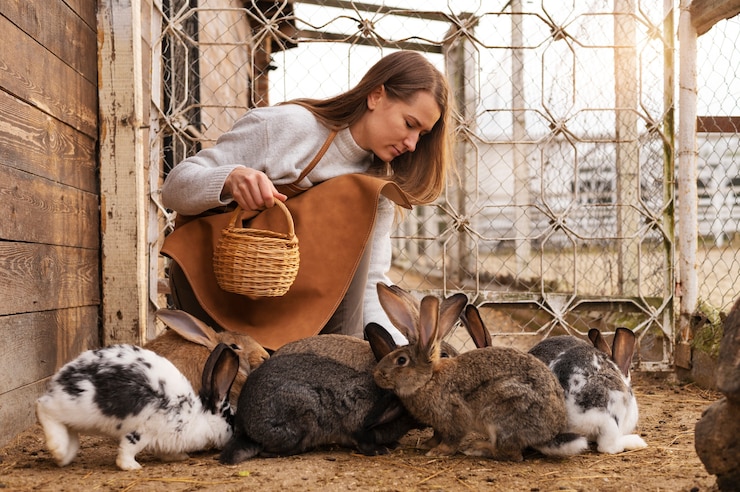Rabbit farming, also known as cuniculture, is a growing industry in South Africa. Whether you’re considering rabbit farming as a primary venture or as a diversification option, understanding the key aspects of rabbit farming is essential for success. In this article, we will explore 10 important things you should know before embarking on rabbit farming in South Africa.
- Research and Knowledge: Before starting a rabbit farming business, conduct thorough research and acquire comprehensive knowledge about different rabbit breeds, housing, feeding, health management, and market demands. Familiarize yourself with industry best practices and consult with experienced rabbit farmers.
- Suitable Rabbit Breeds: Choose rabbit breeds that are well-suited to South African conditions and market preferences. Popular rabbit breeds for farming include New Zealand White, Californian, and Chinchilla. Consider factors such as growth rate, meat quality, reproductive efficiency, adaptability, and market demand for specific breeds.
- Housing and Space Requirements: Provide suitable housing and adequate space for your rabbits. Rabbits need shelter from extreme weather conditions, protection from predators, and enough space to move around. Construct well-ventilated hutches or cages with proper flooring, nesting areas, and ventilation. Provide at least 2 square feet of space per rabbit.
- Feeding and Nutrition: Develop a balanced feeding program that meets the nutritional requirements of rabbits at different stages of growth. Rabbits have specific dietary needs, including high-quality hay, fresh vegetables, and commercial rabbit pellets. Consult with a rabbit nutritionist to formulate appropriate diets and ensure access to clean water at all times.
- Breeding and Reproduction: Understand rabbit breeding and reproductive management techniques. Rabbits have a high reproductive rate, so proper breeding practices are essential for managing herd size and ensuring healthy offspring. Learn about mating, gestation periods, nesting, and weaning processes to optimize reproductive success.
- Disease Prevention and Health Management: Implement a comprehensive health management plan to prevent and control diseases in your rabbit herd. Practice good hygiene, provide proper ventilation, and monitor for signs of illness. Rabbits are susceptible to diseases like coccidiosis, pasteurellosis, and myxomatosis, so consult with a veterinarian specializing in rabbit health.
- Biosecurity Measures: Strict biosecurity protocols are essential to prevent the introduction and spread of diseases. Control access to the rabbit farm, limit visitors, and enforce proper sanitation practices. Quarantine new rabbits before introducing them to the existing herd to minimize disease transmission.
- Marketing and Sales: Identify potential markets for your rabbits, including wholesalers, retailers, restaurants, and direct consumers. Establish relationships with local markets, butcheries, and restaurants. Consider value-added products such as rabbit meat cuts, sausages, or pet rabbits for sale to diversify your offerings and attract more customers.
- Financial Planning: Create a comprehensive business plan that includes investment costs, operational expenses, projected income, and potential risks. Consider factors such as housing infrastructure, breeding stock, feed costs, veterinary services, labor, and marketing expenses. Seek financial advice and explore funding options if needed.
- Continuous Learning and Networking: Stay updated with the latest developments in rabbit farming by attending workshops, seminars, and industry conferences. Join rabbit farming associations or networks to connect with fellow farmers and exchange knowledge and experiences. Continuous learning and networking will help you improve your skills and stay competitive in the industry.
Conclusion: Starting a rabbit farming business in South Africa requires careful planning, knowledge, and dedication. Consider aspects such as breed selection, housing, feeding, health management, biosecurity, marketing, financial planning, and continuous learning. With proper management and attention to detail, rabbit farming can be a profitable and rewarding venture in South Africa. Embrace the challenges, adapt to market demands, and prioritize the welfare of your rabbits. Good luck on your rabbit farming journey!
Image by Freepik








